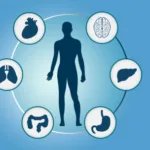Ulysses syndrome is a specific stress disorder of immigrants. It is associated with the multiple experiences of grief that these people face, as well as the difficulties they must overcome to adapt to the new context.
In this article we will describe Ulysses syndrome, its main symptoms and its most common causes. To do this we will fundamentally base ourselves on the work of Joseba Achotegui, the psychiatrist who coined the term by which we refer to this alteration.
Ulysses Syndrome, also known as the Ulysses complex or Ulysses effect, refers to the psychological and emotional toll experienced by immigrants who face chronic stress, uncertainty, and challenges associated with the process of migration and adaptation to a new environment. Named after the legendary Greek hero Ulysses, who endured numerous trials and tribulations during his long journey home, this syndrome highlights the arduous and often traumatic experiences that immigrants encounter as they navigate unfamiliar landscapes and cultures. Here, we delve into the concept of Ulysses Syndrome, its impact on immigrants’ mental health, and strategies for addressing and mitigating its effects.
Understanding Ulysses Syndrome
Ulysses Syndrome encompasses a range of psychological, emotional, and physical symptoms that arise from the stressors and hardships faced by immigrants throughout the migration process. These stressors may include:
- Cultural Shock: Immigrants may experience culture shock as they adapt to new social norms, customs, and expectations, leading to feelings of disorientation, alienation, and identity confusion.
- Language Barriers: Language barriers can hinder communication and social integration, exacerbating feelings of isolation, frustration, and dependency.
- Social Isolation: Immigrants may feel socially isolated and disconnected from their support networks, leading to feelings of loneliness, homesickness, and a sense of belonging.
- Discrimination and Prejudice: Immigrants may encounter discrimination, racism, or xenophobia in their new environment, which can contribute to feelings of insecurity, fear, and marginalization.
- Legal and Financial Stress: Immigrants often face legal and financial challenges, such as navigating complex immigration laws, securing employment, or providing for their families, which can lead to chronic stress and anxiety.
What is Ulysses syndrome?
Chronic and Multiple Stress Syndrome, more frequently known as “Ulysses syndrome” , is a set of symptoms that derives from serious stressors associated with emigration. One of the factors that most contribute to its appearance is the scarcity of economic resources that many people in this situation face.
The usual nomenclature of this syndrome refers to Odysseus, a hero from Greek mythology who was known as “Ulysses” in the Roman world. According to the Iliad and the Odyssey, the two main epic texts of Ancient Greece, after participating in the Trojan War, UIises sailed for 10 years through great difficulties before reaching home.
The term was coined and popularized in the 1990s by Joseba Achotegui, who currently works as a professor at the University of Barcelona and directs the support program called “Psychopathological and Psychosocial Care Service for Immigrants and Refugees.” ” or “SAPPIR”. Of course, it must be taken into account that it is not an “officially” recognized psychopathology that appears in diagnostic manuals such as the DSM-5. For this reason, it is rather considered a set of symptoms that is referred to with the term “Ulysses syndrome” in a rather informal or indicative manner, given that this concept is not very detailed or agreed upon.
Although this syndrome can affect people of all ages, the available evidence reveals that It is more common in elderly and middle-aged people. This is probably due to factors such as fewer socialization opportunities and greater difficulty in learning the new language or adapting to a different culture.

Impact on Mental Health
The chronic stress associated with Ulysses Syndrome can have profound effects on immigrants’ mental health and well-being. Some common mental health issues associated with Ulysses Syndrome include:
- Depression and Anxiety: Immigrants may experience symptoms of depression and anxiety, including persistent sadness, worry, irritability, and difficulty concentrating.
- Post-Traumatic Stress Disorder (PTSD): Immigrants who have experienced trauma, violence, or persecution in their home countries may develop PTSD, characterized by intrusive memories, flashbacks, nightmares, and hypervigilance.
- Substance Abuse: Some immigrants may turn to substance abuse as a coping mechanism to numb their emotional pain or alleviate stress, leading to addiction and other health problems.
- Suicidal Ideation: In severe cases, immigrants experiencing extreme distress and hopelessness may contemplate suicide as a way to escape their suffering.
Main symptoms
The symptoms present in people with Ulysses syndrome may vary depending on the particular case, but have been related to four categories of psychological disorders: anxiety, depression, dissociation (disconnection from physical and emotional experience) and somatoform disorders (physical symptoms of psychogenic origin).
In the depressive area, the presence of feelings of sadness associated with the perception of personal failure, low self-esteem and thoughts related to guilt and, rarely, the desire to die stand out. According to Achotegui, specific symptoms are influenced by culture; For example guilt is more common in Westerners than in Asians.
The experience of anxiety, also very relevant in this syndrome, manifests itself in symptoms such as recurrent and excessive worry (similar to that of generalized anxiety disorder), tendency to irritability, psychological and physical tension or feelings of fear. Insomnia is favored by anxiety and poor living conditions.
Achotegui includes in the spectrum of somatization symptoms and signs such as headaches, present in three quarters of diagnosed people, and fatigue, associated with a lack of psychological motivation. He also highlights the tendency of Asian people to present sexual symptoms or that of North Africans to chest discomfort.
Other problems that frequently appear in people with Ulysses syndrome are low self-esteem, decreased performance at a general level, excessive use of substances such as tobacco and alcohol or painful symptoms gastrointestinal, bone and muscle.
Causes of this syndrome
Ulysses syndrome has been related to the grieving process, which consists of adaptation to psychologically significant losses. People who emigrate are partially separated from their usual environment, from their family, from their friends and even from their identity as citizens of a specific region of the world.
So, some of the triggers or psychological elements that may constitute causes of Ulysses syndrome (probably combining with each other, this class of phenomena does not usually have a single cause) are the following:
When the demands of the new situation are perceived as excessive For the migrant, chronic symptoms of stress and other related psychological alterations may appear that negatively influence well-being and adaptation to the context. This chain of events is what is generally known as Ulysses syndrome.
The feeling of sociocultural isolation is considered a key factor in the appearance of the syndrome. In this sense, ignorance of the language or differences in values are relevant, but also prejudices and discrimination on ethnic and cultural grounds to which immigrants from many countries are systematically subjected.
In cases where the migration process has been carried out illegally, the fear of possible consequences (particularly internment and deportation) constitutes an additional stressor with a particularly high potential to promote a state of chronic emotional distress. .
On the other hand, Ulysses syndrome is also favored by the marked difficulties experienced by a large number of immigrants when trying to legalize their situation, when looking for work or when accessing basic services such as housing and medical care. The frustration of personal and economic expectations of the person is also relevant.
Coping Strategies and Interventions
Addressing Ulysses Syndrome requires a comprehensive approach that addresses the underlying stressors and provides support and resources to help immigrants cope and adapt. Some strategies and interventions include:
- Cultural Competency Training: Educating service providers, healthcare professionals, and community members about the unique needs and challenges faced by immigrants can help foster cultural sensitivity and understanding, reducing stigma and barriers to access.
- Psychosocial Support: Offering psychosocial support services, such as counseling, therapy, and support groups, can provide immigrants with a safe space to express their feelings, process trauma, and learn coping skills.
- Language Access: Providing language interpretation and translation services can facilitate communication and access to essential services for immigrants with limited English proficiency.
- Legal Assistance: Offering legal assistance and advocacy can help immigrants navigate the complex immigration system, understand their rights, and access resources and support.
- Community Integration: Promoting community integration and social inclusion through cultural events, language classes, and community-based programs can help immigrants build social networks, find support, and develop a sense of belonging.
- Policy Changes: Advocating for policy changes that address systemic barriers and inequities faced by immigrants, such as immigration reform, anti-discrimination laws, and access to healthcare and social services, can promote immigrant rights and improve overall well-being.
Ulysses Syndrome shines a light on the challenges and hardships faced by immigrants as they embark on a journey to a new land. By understanding the complex interplay of stressors and their impact on immigrants’ mental health, we can develop strategies and interventions to support and empower immigrants as they navigate the process of migration and adaptation. By fostering a culture of empathy, inclusivity, and solidarity, we can create a more compassionate and supportive society for all.









